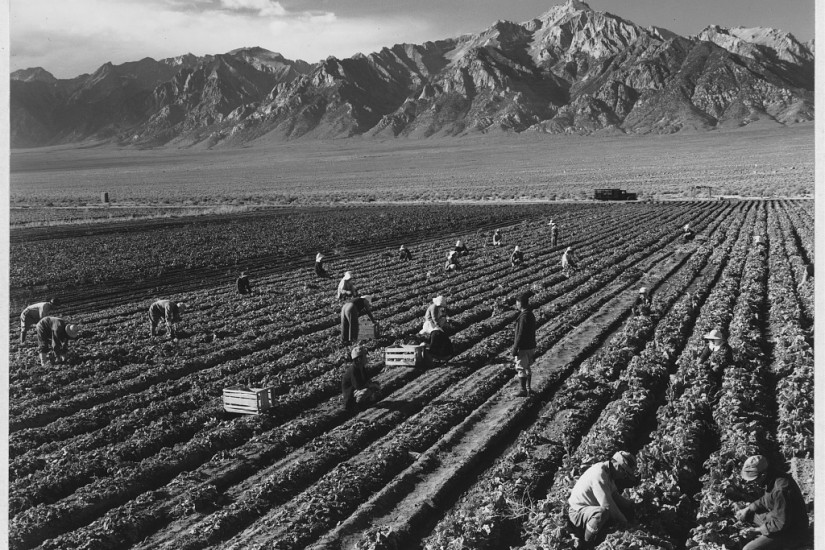Japanese Americans were not a threat to national security—a fact that two secret investigations commissioned by Roosevelt himself confirmed, along with the US Justice Department, the FBI, and military intelligence. But within a few months, the Roosevelt administration had created the War Relocation Authority, charged with rounding up and interning “all people of Japanese descent” on the West Coast. At least 110,000 people of Japanese ancestry—more than two-thirds of whom were US citizens—were incarcerated in military camps based exclusively on their ethnicity, in violation of their constitutional rights.
This ugly chapter of history is an ominous reminder of the combustible nature of the forces roiling Donald Trump’s presidency: public fear, ethnic scapegoating, political expedience, and disdain for civil liberties. But what’s frequently overlooked in the popular narrative of Japanese internment is the role of racialized economic anxiety in drumming up support for the mass incarceration, as Sarah Taber, an agriculture professional specializing in farm management, highlighted in a recent viral Twitter conversation. It wasn’t just straightforward xenophobia or blind fear that prompted Roosevelt administration to order the incarceration of Japanese Americans. White farmers, threatened by Japanese Americans’ success in agriculture, also played a crucial role.
Of course, it’s telling that German- and Italian-Americans weren’t rounded up en masse, despite the fact that Germany and Italy were also America’s enemies during World War II. The “yellow peril” prejudice was clearly a powerful force pushing politicians to call for Japanese American internment. This attitude can hardly be more crisply articulated than by the US army’s West Coast commander, Lt. Gen. John DeWitt. “In the war in which we are now engaged racial affinities are not severed by migration,” he wrote in a report in 1941. “The Japanese race is an enemy race and while many second and third generation Japanese born on United States soil, possessed of United States citizenship have become ‘Americanized,’ the racial strains are undiluted.”
But business interests also played a crucial role in determining the government’s mistreatment of Japanese Americans.
